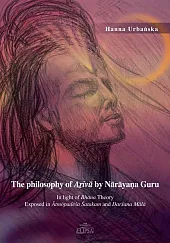The philosophy of Aṟivŭ by Nārāyaṇa Guru
Opis publikacji
The book „The philosophy of A?ivu by Naraya?a Guru…” was written by the Author, who associated her academic career with the still not fully appreciated intellectual heritage of one of the most enigmatic figures of the Indian South as Naraya?a Guru, an extraordinary figure both because of his complex biography (philosopher, spiritual teacher, reformer, social activist) and his extraordinarily rich intellectual output of a highly varied nature that eludes clear-cut description. The extent, nature, and character of the influence of the message of the Tamil medieval work Tirumandiram and doctrine of Kashmir Śaivism on the developing currents of thought and religious-philosophical literature (and not only such) of the region of historical and contemporary Kerala is still underestimated and is only becoming before our eyes an important new current of research, in the current of which the Author undoubtedly fits brilliantly. The original form of this influence, in the cas...
The book „The philosophy of A?ivu by Naraya?a Guru…” was written by the Author, who associated her academic career with the still not fully appreciated intellectual heritage of one of the most enigmatic figures of the Indian South as Naraya?a Guru, an extraordinary figure both because of his complex biography (philosopher, spiritual teacher, reformer, social activist) and his extraordinarily rich intellectual output of a highly varied nature that eludes clear-cut description. The extent, nature, and character of the influence of the message of the Tamil medieval work Tirumandiram and doctrine of Kashmir Śaivism on the developing currents of thought and religious-philosophical literature (and not only such) of the region of historical and contemporary Kerala is still underestimated and is only becoming before our eyes an important new current of research, in the current of which the Author undoubtedly fits brilliantly. The original form of this influence, in the case of the work discussed by the Author, shines through the thought of mostly philosophical nature, the message of which also reveals to us an original project of the science of cognition of human nature, but also the emancipatory dimension of cognition and knowledge (the title a?ivu = knowledge), overcoming the basic limits of the human condition, the science leading to the promise of liberation, the vision of freedom in the individual, spiritual and social sense at the same time. Due to the elements of an innovative approach as well as the importance of the subject, the new book by Hanna Urbańska deserves the full attention of the academic community and of the reader, who is keen on alternative forms of exploring the nature of human relations with the surrounding world.


